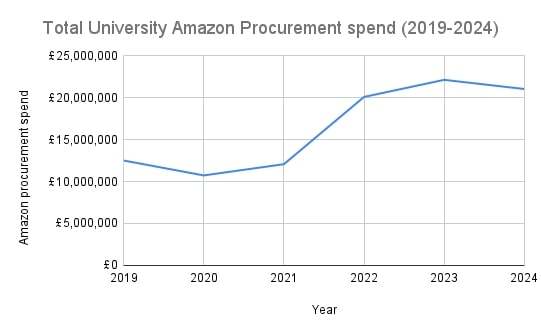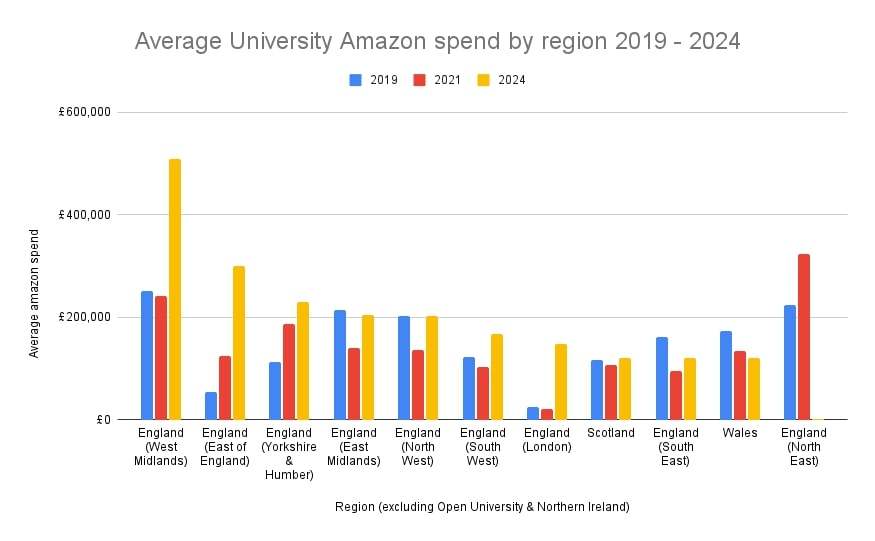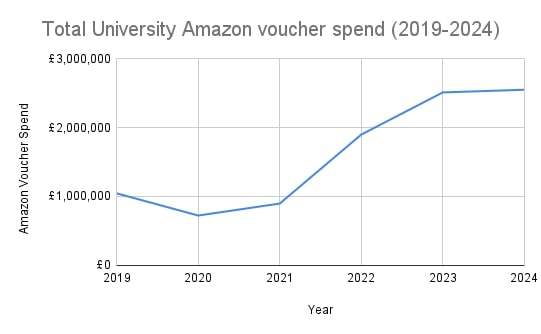UK universities spent more than £63 million with Amazon over the last three years.
Yalda Keshavarzi reveals just how much universities are spending with Amazon.
24th April 2025
Amazon has long faced criticism for its systematic tax avoidance and exploitative business practices, yet it has aggressively expanded into institutional procurement through its Amazon Business accounts. We sought to determine whether taxpayer-funded universities were increasing their reliance on this ethically contentious company.
At the end of 2024 Ethical Consumer submitted freedom of information requests to 133 UK universities, asking for details of their spending with Amazon over the previous three financial years.
This research builds on a previous freedom of information request we conducted in 2022.
The combined data show that 59% of universities have increased their spending with Amazon over the last three years, while 41% have reduced it.
Across the 92 universities that provided data, total spending with Amazon over the three years amounted to over £63 million.
On average, university spending with Amazon was £267,558 annually each, though some institutions spent far more. In 2024 alone, the University of Sheffield spent £1.51 million, making it the highest spender, followed by University College London, the University of Liverpool, and the Open University.




